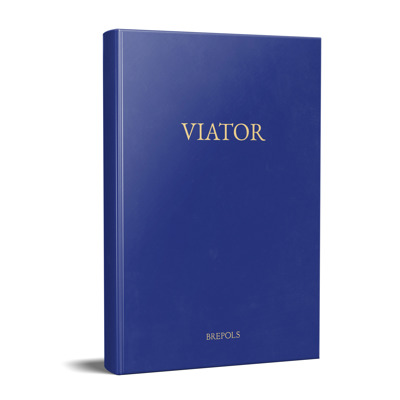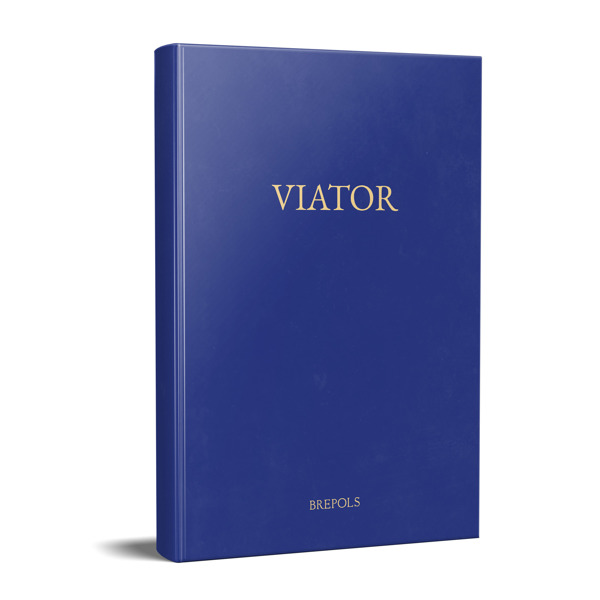
Viator 40, No. 2 (2009)
Volume 40, No. 2 (2009)
- Pages: 392 p.
- Size:175 x 255 mm
- Illustrations:12 b/w
- Language(s):English
- Publication Year:2009
- € 62,00 EXCL. VAT RETAIL PRICE
- ISBN: 978-2-503-53085-7
- Hardback
- Out of Print
- E-journal
- Available
De dignitate conditionis humanae: Translation,
Commentary, and Reception History of the Dicta Albini
(Ps.-Alcuin) and the Dicta Candidi
METTE LEBECH AND JAMES MCEVOY WITH JOHN FLOOD
“Democratic” Action in Eleventh-Century Byzantium:
Michael Attaleiates’s
“Republicanism” in Context
DIMITRIS KRALLIS
The Purposeful Patron: Political Covenant in the Salerno
Ivories
ELIZABETH C. COREY
Demetrius of Thessaloniki: Patron Saint of Crusaders
ELIZABETH LAPINA
Trouble in the Island of the Mighty: Kinship and Violence in
Branwen ferch Lyr
LESLEY JACOBS
The Kingdom of Sicily and the Early University Movement
PAUL OLDFIELD
The Process of State-Formation in Medieval Iceland
SVERRIR JAKOBSSON
Liturgy and the Spiritual Experience of Religious Women at Santa
Maria
de Vallbona, Catalonia
MICHELLE M. HERDER
The de Reys (1220–1501): The Evolution of a
“Middle-Class” Muslim Family
in Christian Aragón
BRIAN A. CATLOS
Priestly Marriage: The Tradition of Clerical Concubinage in the
Spanish Church
MICHELLE ARMSTRONG-PARTIDA
The Story of Engle and Scardying: Fragment of an Anglo-Norman
Chronicle Roll
DON C. SKEMER
Practice and Knowledge in a Medieval Livre de
Raison
IONUT EPURESCU-PASCOVICI
Rethinking the Recensions of the Confessio Amantis
WIM LINDEBOOM
Treating of Virtue: Intertextuality in a Fifteenth-Century
Spanish Miscellany
MICHAEL HAMMER
Laughter in Rabelais’s Gargantua and Pantagruel:
Utopia as Extra-Textual Place
MEREDITH CLERMONT-FERRAND
Forking Paths in Sixteenth-Century Philosophy: Charles de
Bovelles and
Giordano Bruno
CESARE CATÀ




